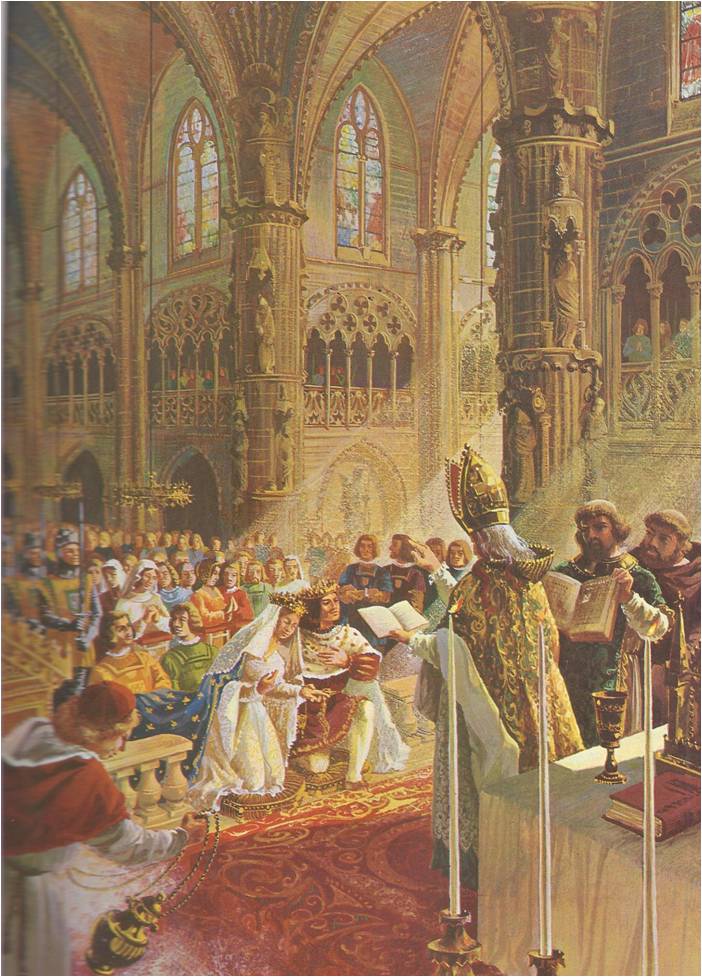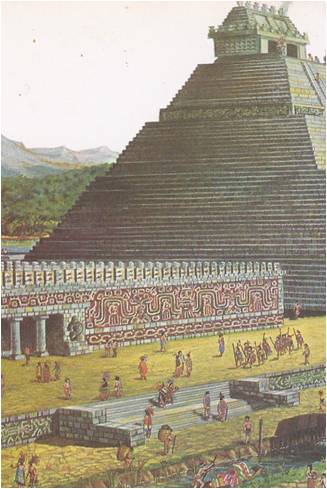Visitors to the Portuguese city of Lisbon, on a certain day in 1499, would have found the people in a holiday mood. Groups of townsmen who gathered here and there talked excitedly about the arrival of two ships and there was good reason. In the two years since these vessels had sailed down the river and slipped out of sight, they had completed the first trip from Europe around Africa to India and back. Such an event indeed deserved to be celebrated. Not only had the fearless captain of this expedition, Vasco da Gama, performed a great feat of navigation, …
Read More »Tag Archives: Pizarro
Ferdinand and Isabella Unite Spain 1469-1700
IT WAS Wednesday, October 18, 1469 and Princess Isabella of Castile and Prince Ferdinand of Aragon were being married. At the end of the beautiful ceremony, the two thousand guests cheered and the entire city of Valladolid began a week of celebration. Isabella was overjoyed, for she loved her husband and he loved her. They seemed well matched. Isabella was eighteen, tall, blonde and blue-eyed – “The handsomest lady I ever beheld‚” one nobleman said. Ferdinand was slightly shorter than his wife, but he was handsome. Isabella was intelligent, very religious and strong-willed. Ferdinand, too, was intelligent and he was …
Read More »Adventures in the New World 1519 – 1620
“I DID NOT come to till the soil like a peasant,” said Hernando Cortez. “I came to find gold.” His words echoed the thoughts of almost every Spaniard in the New World. The discovery of the sea route to the West had set off a great treasure hunt. Colonizing and slaughtering, building and plundering, the gold-hungry Spaniards won a Spanish Empire of the West. Conquistadores‚ they were called — the conquerors. None of the treasure-hunters was more cunning or ambitious than Hernando Cortez‚ who came to the island of Hispaniola in 1504. It was not until 1519 that the governor …
Read More »

